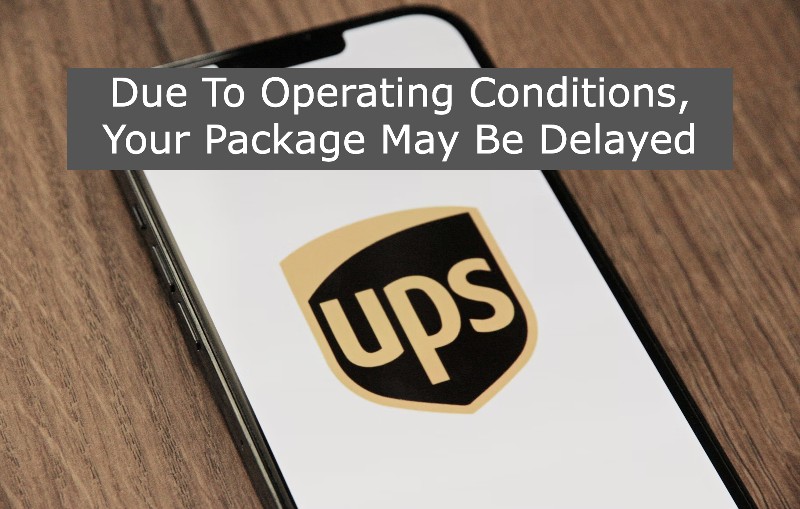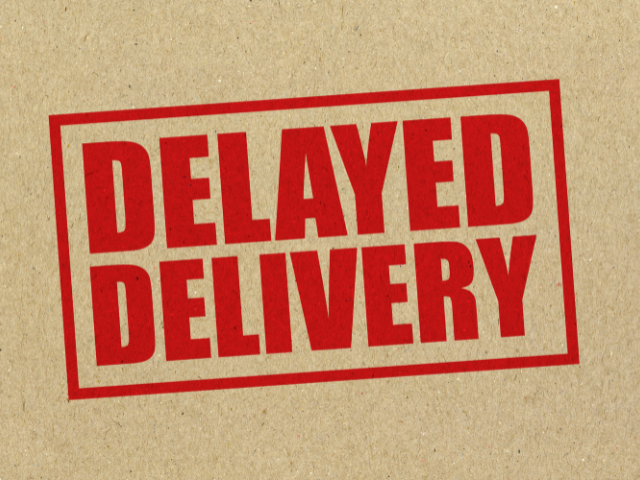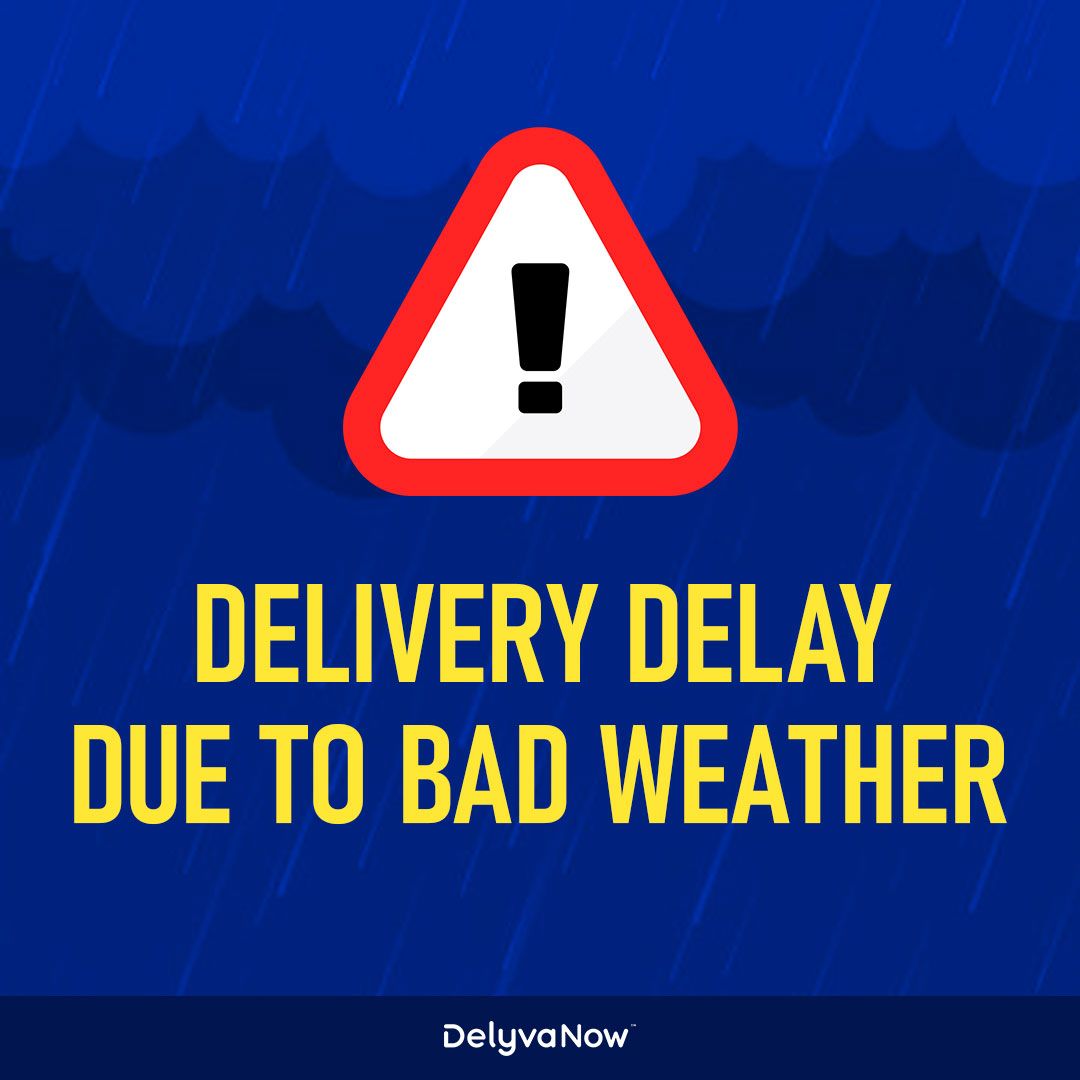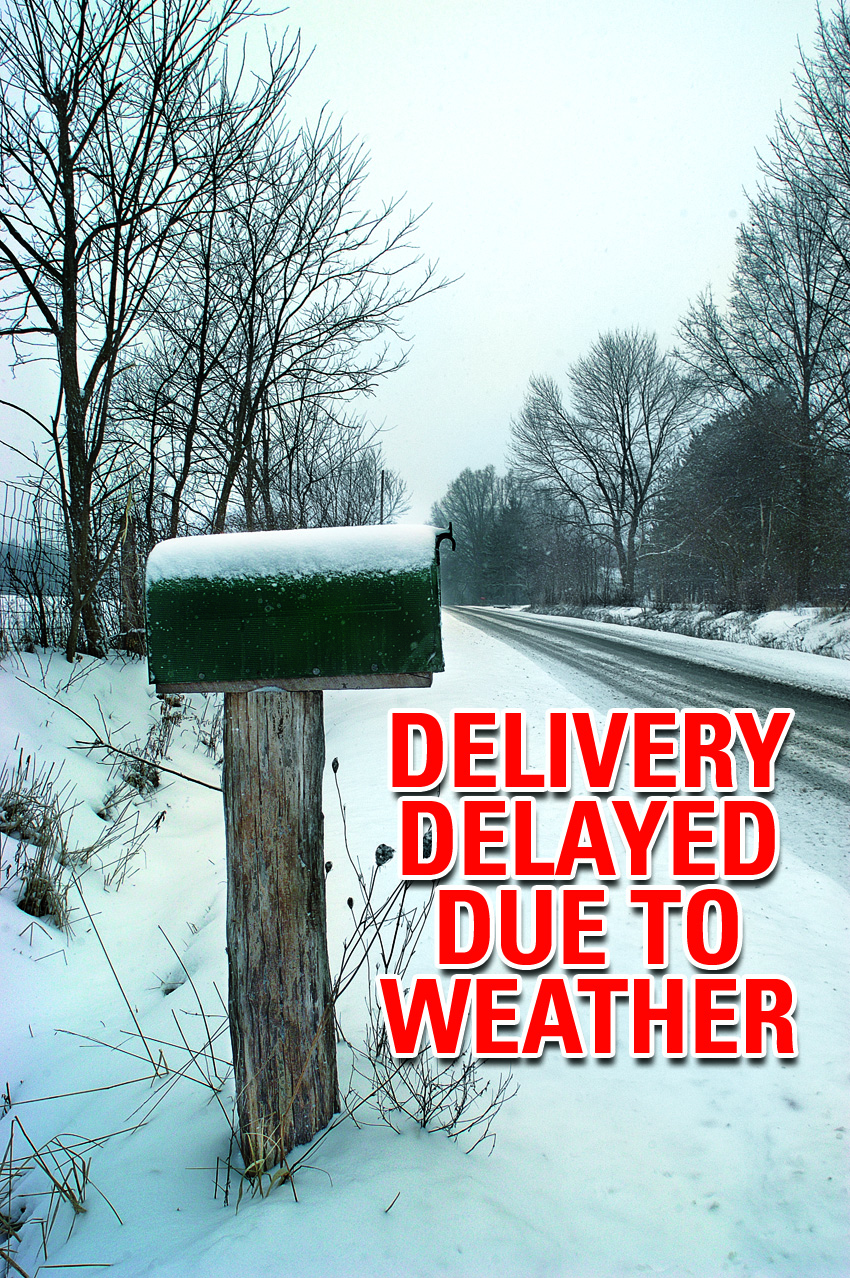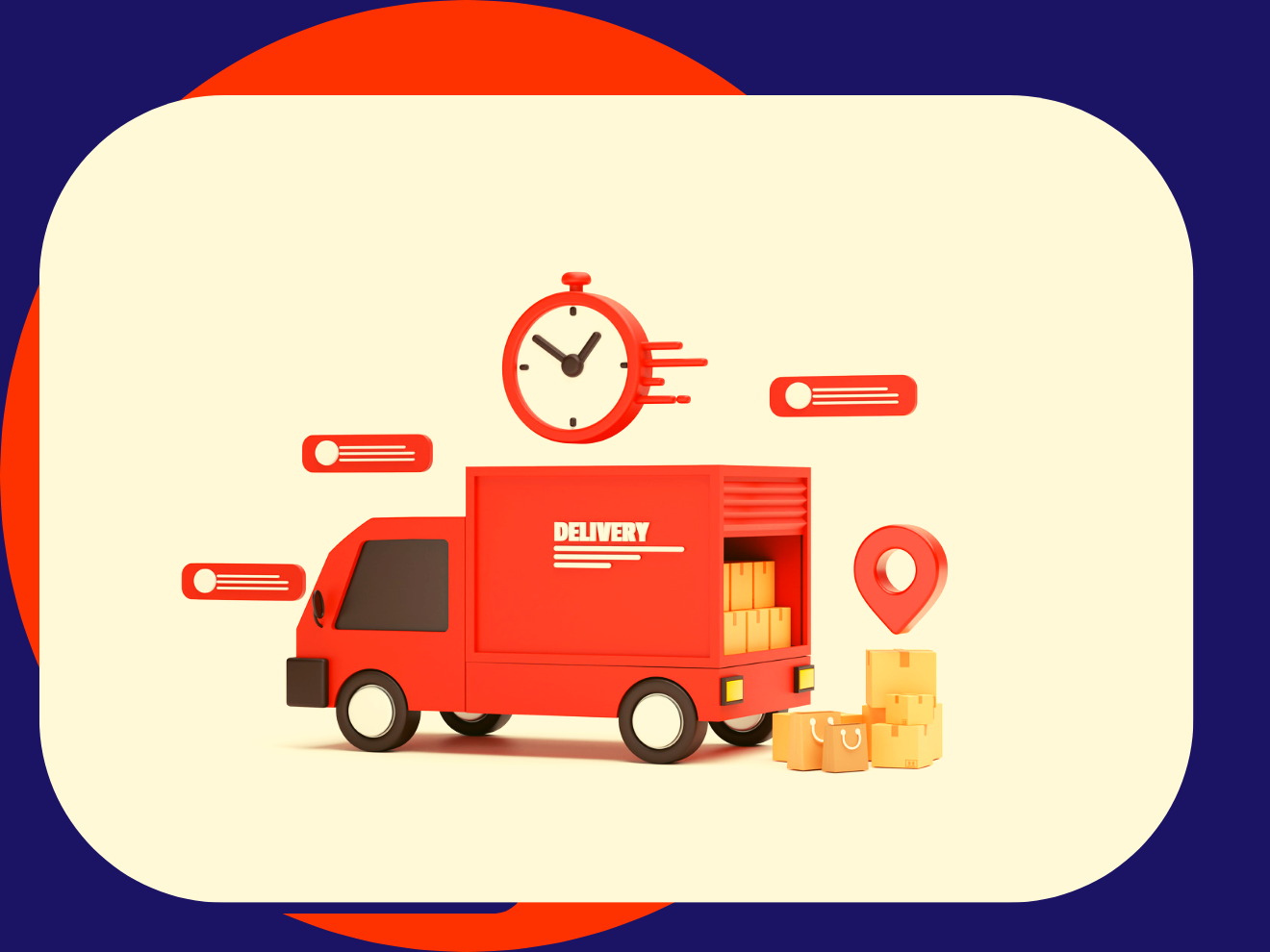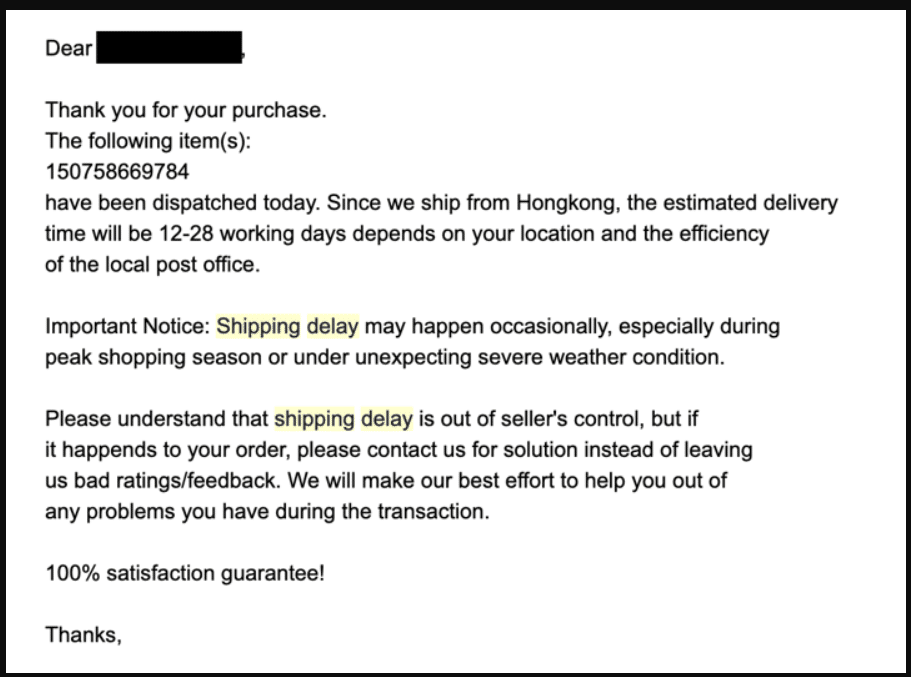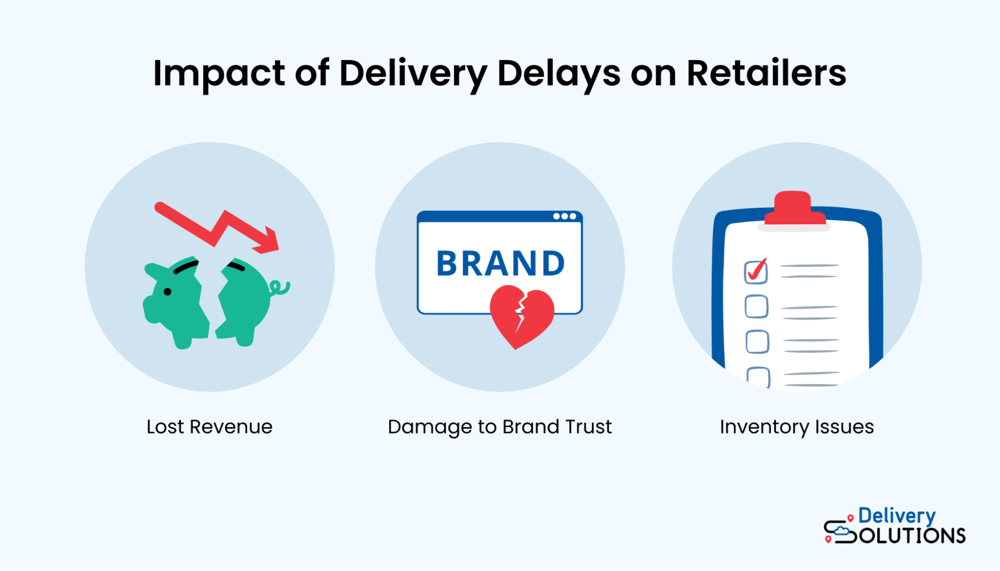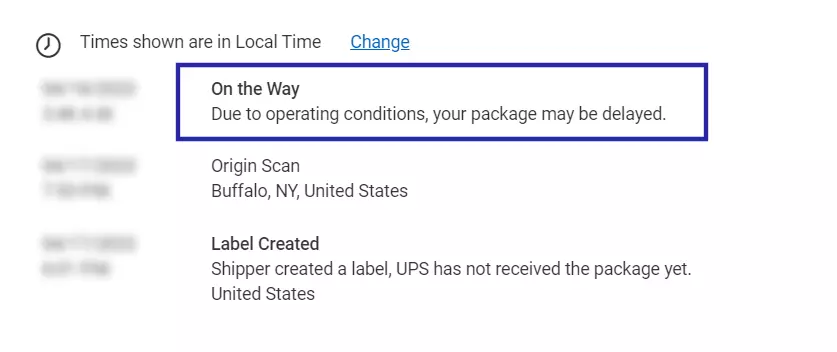Delivery May Be Delayed Due To Public Authority

Imagine this: you're eagerly anticipating a package, maybe that long-awaited gadget, a gift for a loved one, or crucial supplies for your small business. You've tracked its journey every step of the way, from the warehouse to your local depot. But then, the tracking stalls. A cryptic message appears: "Delivery May Be Delayed Due To Public Authority." The anticipation turns to frustration, and questions begin to swirl.
At its core, the message "Delivery May Be Delayed Due To Public Authority" signifies that a governmental or regulatory body has intervened in the standard delivery process. This intervention can stem from various sources, ranging from customs inspections and regulatory compliance checks to unexpected public safety concerns or even legal mandates impacting the movement of goods. While frustrating, these delays underscore the complex interplay between commerce and public oversight, highlighting the need for transparency and understanding in navigating these disruptions.
Understanding Public Authority Interventions
The phrase "Public Authority" is broad, encompassing various government agencies at the local, regional, and national levels. Understanding the types of interventions helps navigate potential delays. Let's break it down.
Customs and Border Protection
For international shipments, Customs and Border Protection (CBP) agencies are often the primary source of delays. CBP ensures goods entering a country comply with import regulations, including tariffs, taxes, and restrictions on specific items. Delays can arise from increased inspections, paperwork discrepancies, or even suspicion of illicit goods.
Regulatory Compliance Checks
Beyond borders, regulatory bodies oversee the movement of goods within a country. This includes agencies like the Food and Drug Administration (FDA) for food and medical products and the Environmental Protection Agency (EPA) for hazardous materials. These agencies ensure products meet safety and environmental standards before reaching consumers, often conducting random checks or targeted inspections based on risk assessments.
Public Safety and Emergency Situations
Unexpected events like natural disasters, civil unrest, or public health emergencies can also trigger public authority intervention. During such times, authorities may restrict movement to ensure public safety, rerouting traffic and temporarily halting deliveries. The COVID-19 pandemic offered a stark example, with lockdowns and border closures causing widespread delivery disruptions.
Legal Mandates and Law Enforcement
In some cases, delays may be due to legal mandates or law enforcement actions. A court order might require the seizure of goods, or police investigations might necessitate the temporary holding of shipments. These situations are usually less common but can have significant impacts on affected deliveries.
The Ripple Effect of Delays
Delivery delays stemming from public authority intervention can have significant consequences. Consumers might face inconvenience and disappointment, especially when waiting for essential items or time-sensitive gifts. Businesses, particularly small and medium-sized enterprises (SMEs), can experience financial losses due to disrupted supply chains, missed deadlines, and damaged customer relationships.
According to a 2023 report by the World Trade Organization (WTO), unexpected trade disruptions can lead to a significant decrease in global trade volume, impacting economic growth and stability. The report emphasizes the importance of efficient customs procedures and transparent regulatory frameworks to minimize disruptions and facilitate trade.
Navigating the Delay: What Can You Do?
While you can't directly control public authority interventions, there are steps you can take to mitigate the impact of potential delays. First, stay informed. Regularly check the tracking information provided by the carrier and look for detailed explanations of the delay.
Contact the carrier directly for clarification. In many cases, customer service representatives can provide more specific information about the cause of the delay and estimated resolution times. Be patient and polite, as they are often working with limited information themselves.
If the delay involves customs or regulatory issues, gather all necessary documentation related to your shipment. This includes invoices, packing lists, and any permits or licenses required for the goods. Having these documents readily available can expedite the clearance process.
For businesses, consider diversifying your supply chain to reduce reliance on single sources or transportation routes. Explore alternative shipping options and proactively communicate with customers about potential delays. Transparency and proactive communication can help manage expectations and maintain customer loyalty.
The Broader Context: Balancing Efficiency and Oversight
Delivery delays due to public authority interventions highlight the delicate balance between efficient commerce and essential public oversight. While delays can be frustrating, these interventions often serve important purposes, such as protecting public health, ensuring product safety, and preventing illicit activities. Streamlining procedures, enhancing communication, and leveraging technology can help minimize disruptions without compromising critical regulatory functions.
Initiatives like the World Customs Organization's (WCO) SAFE Framework aim to standardize customs procedures, promote data sharing, and enhance cooperation between customs administrations worldwide. These efforts contribute to more efficient border management and reduced delays for legitimate trade.
Technology also plays a crucial role. Automated customs clearance systems, real-time tracking platforms, and data analytics can improve efficiency and transparency in the supply chain. Governments and businesses are increasingly investing in these technologies to optimize processes and minimize delays.
Looking Ahead: A Future of Smarter Deliveries
The future of deliveries will likely involve even greater integration of technology and closer collaboration between public authorities and private sector logistics providers. Predictive analytics can help identify potential bottlenecks and proactively address issues before they cause delays. Blockchain technology can enhance supply chain transparency and security, reducing the risk of fraud and facilitating smoother customs clearance.
Ultimately, navigating delivery delays caused by public authority requires a combination of patience, proactivity, and understanding. While frustrating, these interventions reflect the complex realities of global trade and the importance of public safety and regulatory compliance. By staying informed, communicating effectively, and embracing technological solutions, we can work towards a future of smarter, more resilient deliveries that balance efficiency with essential oversight. Remember, behind that "Delivery May Be Delayed Due To Public Authority" message lies a system working to ensure a safer and more secure world, even if it means a temporary pause in our eagerly awaited packages.

